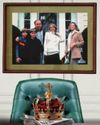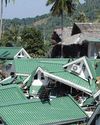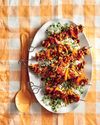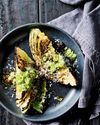
Everybody knows the story of Superman. How a baby from another world is found and adopted by a humble farming couple who discover the boy possesses incredible powers. Mr and Mrs Kent bring their son, Clark, up with strong moral values and teach him that his duty is to help and protect humanity.
"But what about the opposite scenario?" asks Mo Gawdat, a former top executive at Google's artificial intelligence division. "Suppose the Kents had done things differently, and Superman had learned greed and self-interest. What would have stopped him from destroying the world?
"This is where we are with AI."
In a sense, all of us - the scientists who have created a new breed of hyper-intelligent machines, the governments and corporations that will deploy them, and everyone who will come to rely on them - are the new Kents. If we can safely steer artificial intelligence towards good purposes, it has the potential to vastly improve our lives. If not, it is terrifyingly capable of destroying us.
In May, a group of AI-pioneering researchers and executives issued a blunt warning that reducing the dangers of the new technology should become a global priority. A few weeks earlier Professor Geoffrey Hinton, a British scientist known as the 'Godfather of AI', said that he was retiring from the field and now regretted some of his achievements.
"It's hard to see," he said, "how you can prevent the bad actors from using it for bad things."
This story is from the {{IssueName}} edition of {{MagazineName}}.
Start your 7-day Magzter GOLD free trial to access thousands of curated premium stories, and 9,000+ magazines and newspapers.
Already a subscriber ? Sign In
This story is from the {{IssueName}} edition of {{MagazineName}}.
Start your 7-day Magzter GOLD free trial to access thousands of curated premium stories, and 9,000+ magazines and newspapers.
Already a subscriber? Sign In

BATTLE FOR THE THRONE
As word of a judgement leaks from the courtroom where the Murdochs have been tussling for power, those close to the throne suggest that the battle for the world’s most powerful media empire has only just begun.

AFTER THE WAVE
Twenty years ago, the Boxing Day tsunami tore across the Indian Ocean, shredding towns, villages and holiday resorts, and killing hundreds of thousands of people from Indonesia to Africa. Three survivors share their memories of shock, terror and loss with The Weekly.

Escape to the country
Raised in New Zealand, design icon Collette Dinnigan opens the doors to her family homestead, where treasures from her travels rest side by side with the sights, sounds and style of her Australian life.

Ripe for the picking
Apricots are at their peak sweetness now, take inspiration from our savoury and sweet ideas.

Grill-licious
The backyard barbecue has come a long way from the days of chargrilling some snags. Try our fresh batch of recipe inspiration for your next cook-up.

Reclaim your brain
Perimenopause made me realise that our brains need looking after.

Long and the short of it
If youre considering a chop and change, this is how to nail a hair transformation.

Have we lost the art of conversation?
In a world of thumbs-up emojis and one-way voice memos, are we forgetting how to converse? The Weekly engages in an experiment in listening and genuine two-way chatting.

Farewell, 1936-2024 Maggie T
At Lhe Weekly Maggie labberer was and remains our guiding light the epitome of elegance with a whip-smart intellect, naughty sense of fun and innate kindness. She was a one-off.

MEL SCHILLING Cancer made me look at myself differently
One year on from going public with her bowel cancer diagnosis, Mel Schilling reveals where she's at with her health journey and how it's changed her irrevocably.